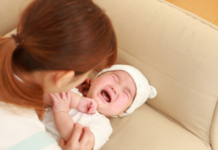If one week out of every month you feel like you’re being turned inside out and stabbed with a thousand tiny knives by a mob of angry villagers, then congratulations on having ovaries and being a woman.
If you’re reading this and thinking “Well, that sounds a bit dramatic. It can’t really be THAT bad.”
Wrong. And science agrees. In an interview with Quartz Media, John Guillebaud, professor of reproductive health at University College London, stated that patients have described the cramping pain as “almost as bad as having a heart attack.”
Whoa.
And yet, women are consistently left to suffer in silence as this biological reality is still considered too taboo for everyday conversation.
I mean, you can’t even watch a football game on T.V. without hearing about erectile dysfunction, but period pain is a hush-hush topic that makes people cringe with discomfort.
Puh-lease.
It’s the 21st century, here we get to talk about period pain and our right to not feel like our lower abdomen is being squished by a tortuous medieval vise every 28 days.

So let’s get technical for a minute, the medical term for menstrual pain is actually dysmenorrhea. (Try saying that 3 times fast.) And according to the International Journal of Reproductive Medicine, 90% of adolescent females and 50% of women worldwide are affected by this.
That’s a lot of people experiencing a lot of pain on a monthly basis.
Secondary dysmenorrhea is menstrual pain that is caused due to a disorder in the reproductive organs. So not all pain is created equal, and it’s important to talk to your gynecologist about the pain you’re experiencing. Don’t just assume that because periods are never talked about that it’s no big deal. Your pain could be an indication that there’s an underlying issue.
This makes you wonder why more studies haven’t been done to determine why some women experience such intense symptoms, while others get a more mild version. And what, if anything, can be done to control or eliminate the pain besides recommending over the counter painkillers like Ibuprofen or prescribing birth control to reduce the flow of the period. Two options that don’t always work.
What we know for sure is, it’s imperative we have healthy dialogue about our reproductive health starting at a young age. When I was a teenager there was no mention of what was happening to my body. I knew from middle school health class that I was in fact having a period, but I was completely unprepared for the pain I would feel each month. I had a doctor, but because the conversation never took place at home I didn’t feel comfortable discussing my pain with my physician. I really felt like it was not only something that shouldn’t be talked about but that periods were shameful. Each month I armed myself with a heating pad and a bottle of Aleve to keep the pain at bay. It just became a way of life.
With any luck, the more medical professionals and women in general who are willing to discuss the serious and sometimes debilitating symptoms that come with menstruation and period pain, the greater chance we have of making progress towards normalizing this topic and eliminating the stigma associated with it.
So whether you refer to your period as Aunt Flo, the red tide, your monthly visitor, code red, or my personal favorite, shark week, just talk about it. Maybe eventually someone will take it seriously.
***
Kari is a freelance writer whose work has appeared on Huffington Post, Scary Mommy, Babble, and more. She writes because it’s the only way for her to finish a thought without being interrupted by her two kids.





















